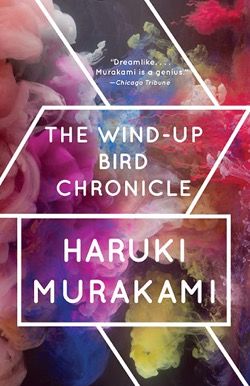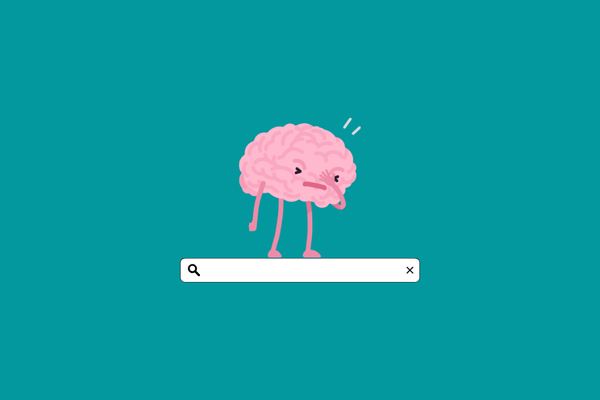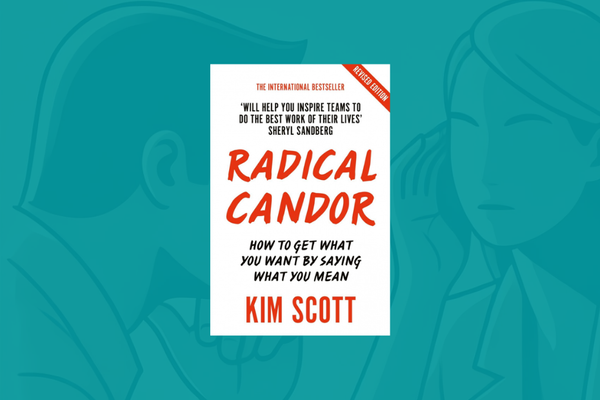Escape the everyday grind by chilling out in a well with Murakami
The Wind-Up Bird Chronicle is a Murakami Haruki novel, in which an everyday guy is dragged into strange situations. Enjoy the inappropriate phone calls, absurd dreams, and the cold of the old well in a magical world where everything has some real-life teachings.
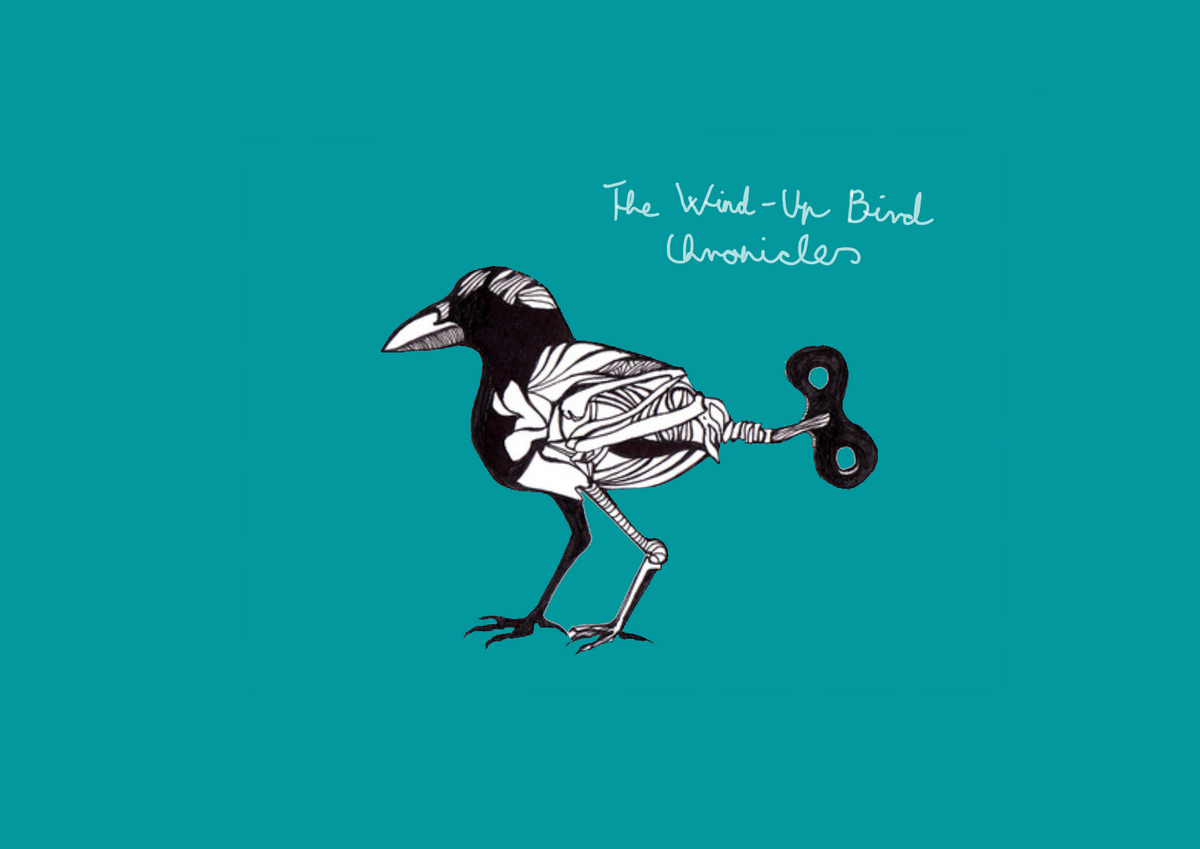
Reading stories about day-to-day challenges is boring. Reading a detective story is slightly more interesting. Reading a detective story of an everyday dude where the plot is made mystical with a touch of magic is the best.
But Murakami Haruki always put some real-life parallels, and hard-to-decode metaphors into his books, so we can enjoy the story while thinking hard about what this all meant.
It’s magical realism or what.
I usually don’t write about novels/fiction. In non-fiction books, there is universal learning I can synthesize in a form of a summary, but the lessons of a novel are varying from person to person. You may take with you something completely different from a novel than me.
I want to share with you my interpretation of the Wind-Up Bird Chronicle.
Not necessarily learnings or lessons, but thoughts, feelings, and questions it raised.
I hope you will find my thoughts about this book helpful either if you are looking for a good novel to read or if you are trying to understand the numbness of everyday hustle, getting lost in the day-to-day, confronting evil, and making the right choices.
Is Wind-Up Bird Chronicle good for a first-time Murakami reader?
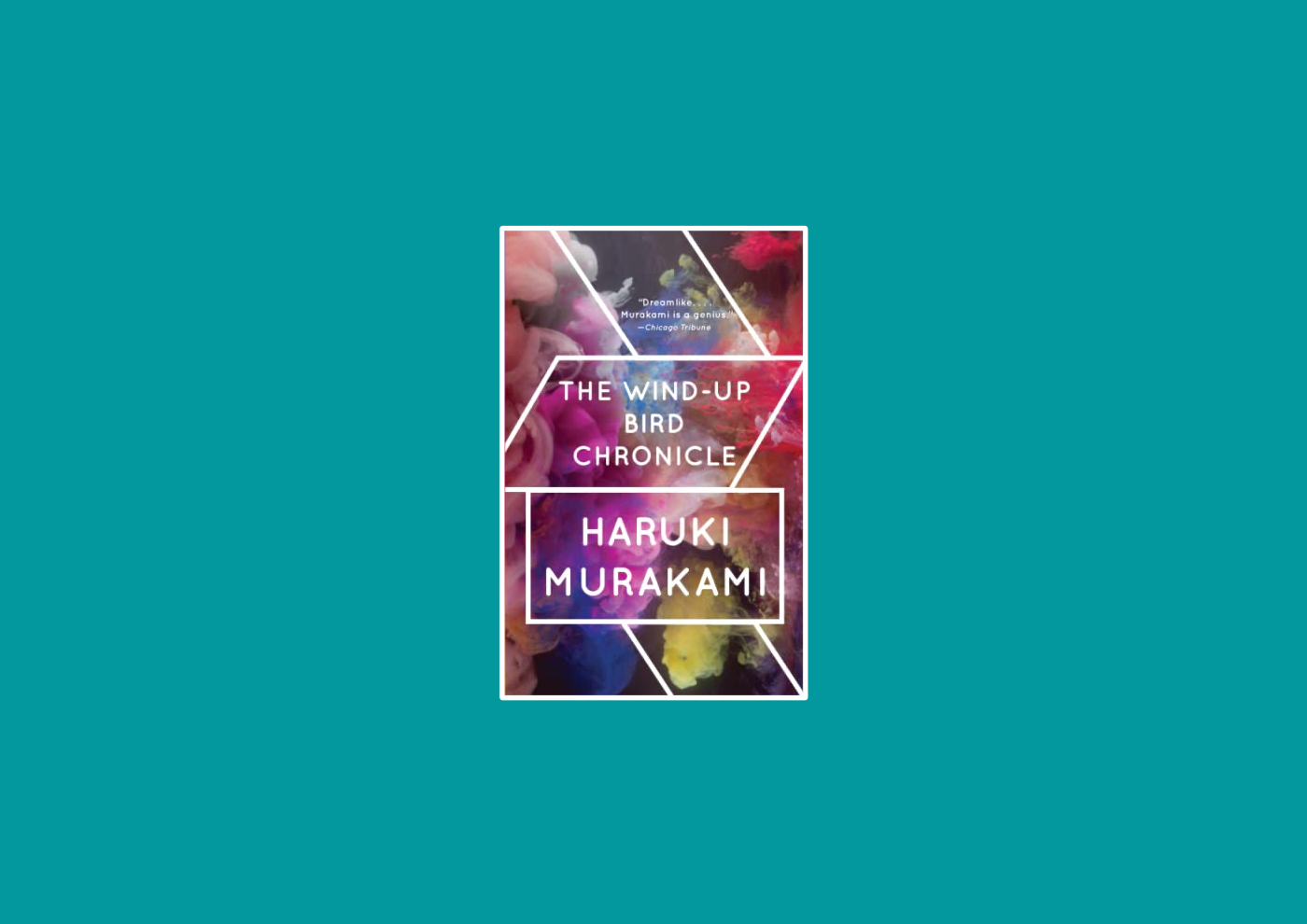
In Japan The Wind-Up Bird Chronicle was published as 3 separate books in 1994-95:
- Book of the Thieving Magpie (泥棒かささぎ編, Dorobō kasasagi hen)
- Book of the Prophesying Bird (予言する鳥編, Yogen suru tori hen)
- Book of the Bird-Catcher Man (鳥刺し男編, Torisashi otoko hen)
The same structure is reflected in chapters in the English translation.
The late 90s vibe gave me chills. Toru Okada (the main character) sits before a desktop computer and dialed into the internet to conduct his investigation. It was just great to read a novel from an era before the disrupting notifications of smartphones.
Murakami had quite a success before writing this book in 1994 (his first book was published in 1979).
So we are right to assume that the Wind-Up Bird Chronicle is one of his more mature stories, but it is a good first read for someone who never touched a Murakami book before.
I have read Norwegian Wood (published in 1987), Kafka on the Shore (2002), Killing Commendatore (2017), and a non-fiction book, What I Talk About When I Talk About Running from Murakami before.
Even though in style most of these books are similar and Murakami has written Wind-Up Bird Chronicle much earlier than the rest I read, I think it's a better choice to start with Norwegian Wood or other shorter novels.
The main reason is the length of these books.
The Wind-Up Bird Chronicle is a 607-page long book where the plot is slowly progressing and it takes time while you put together the puzzle pieces that this book is actually about.
With a shorter story, you can decide earlier whether you like the magical realism of Murakami or not.
The Wind-Up Bird Chronicle Review

I will try to share as few details about the plot as possible while giving a sneak peek into the main ideas of The Wind-Up Bird Chronicle.
The book starts with Toru Okada making spaghetti in his apartment. He just left his low-level legal job, and now he is spending his day going to the supermarket, cooking, and doing chores.
Toru had a boring life until the point he quit his job, but strange events are starting to happen around him after.
He starts to receive strange phone calls, his wife behaves oddly and their cat goes missing. Basically, things started to happen just after he quits his job like it would be some kind of catalyst.
We can think that Toru got lost because of refusing the everyday hustle, but in reality, he was lost before, just he was busy working and didn’t give attention to the details which proved to be important in hindsight.
"Never until then- never in the whole course of my life-had I grappled with questions like this. And why not? Probably because my hands had been full just living. I had simply been too busy to think about myself."
What I like about Murakami’s characters is that most often than not they don’t have a big goal in life, but they still succeed.
Being there for a friend, fixing an old well, or showing up for a dinner is presented as progress and it is.
In Toru’s story, the natural flow of things is more important than the individual.
Hustle and consequences
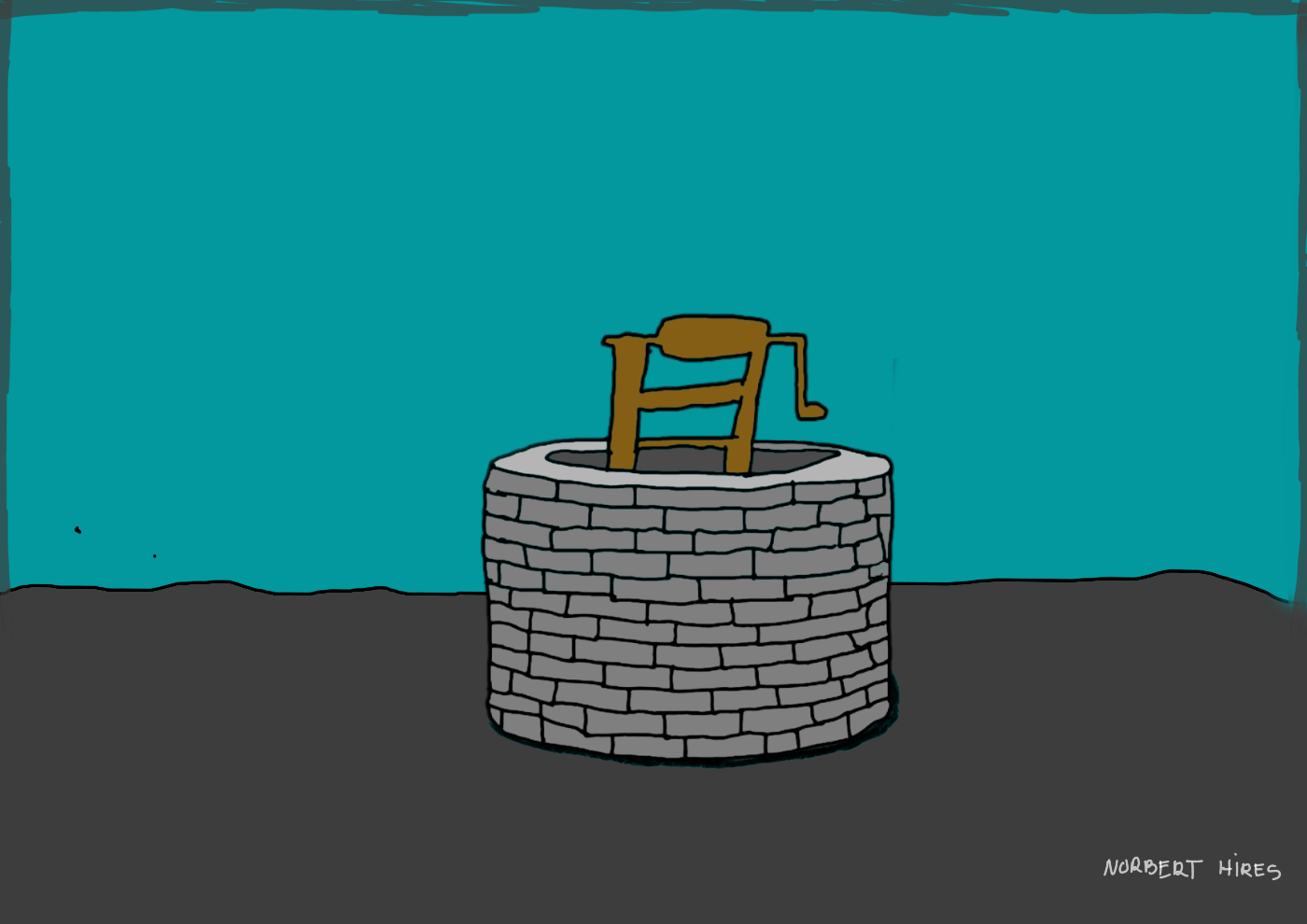
In the plot, we got to know a mysterious woman, with the Nutmeg alias who can heal people. After she discovered her abilities she turned them into a money-making machine.
“Fitting” (or fixing) wealthy wives with magic is certainly a profitable side gig. Nutmeg appears as a powerful, wealthy yet mysterious person and keeps this look even though we got to know her story.
She hustled through his life as a designer, and later as a healer.
But she is dying.
She gave too much and she is paying the price for it.
Our protagonist turns out to have the same abilities and got recruited to the wife healing business, though he is picking another route with his abilities.
He goes to the bottom of the well (literally) and he is hustling to dig down to the bottom of his own problems.
Looks morally justifiable and more interesting, but Toru’s path has its own dangers. He goes deep into the well and he risking to get stuck there without the hope of finding himself again.
It’s like therapy.
Making choices and doing the right thing
There is no big plan Toru is following, but he makes choices in his simple life which are fundamentally changing his boring day-to-day.
- He quits his job without any trigger.
- He answers the strange phone calls.
- He goes down into the old well.
- And he feels compelled to buy the cursed house for some reason.
For sure there are events that he does not control. The disappearance of his cat and his wife, Kumiko leaving him is certainly one of these.
But when it matters the characters of Murakami Haruki do not just react, but they are shaping the course of actions by doing the hard things.
When the unknown man is knocking on the hotel door, Toru confronts his fears by letting him in. Kumiko is taking the life of the poppet master regardless of the consequences.
Confronting the evil and the evil within you
We have a long side story of an old man, Luitenant Mamiya who fought in the second World War and got captured and sent to a gulag camp after the Battle of Nomonhan.
He meets a ghost from his past, a Russian general who once peeled the skin of one of his comrades. Man-Skinning Boris did terrible things in the past for the Soviets, but made a mistake and got stuck in a Gulag camp as a prisoner.
We are waiting for Luitenant Mamiya to beat Boris, but it just didn’t happen.
Evil lives, evil survives and often evil wins.
Besides the obvious evils like Boris, there is a little evil in everyone in The Wind-Up Bird Chronicle.
Toru attacks and beat the heck out of a man who is carrying a guitar case for no particular reason.
In other situations, evil takes the form of reason. It presents itself as a compromise when the right thing to do is fight. Our protagonist got presented with several “deals” to take to “make things right”, but he does the actually right things.
Metaphors through the book

Toru takes his wife's clothes several times to the cleaner near the station through the book. When Kumiko leaves him the only thing she takes with her are freshly cleaned clothes.
In hindsight going to the cleaner could mean the sins of Kumikor.
The disappearance of the cat signaled a change and when it returned Toru gave him a new name, which marked a new start.
There are several mentions of water and flow.
The corrupted flow of the neighborhood, the dry well, Malta Kano’s (another strange character) obsession with water, and the bursting water at the well after the climax of the story are not some random events but all are pointing to something.
Even small details can have some hidden meaning in The Wind-Up Bird Chronicle which makes it even more enjoyable.
It makes you think.
Is The Wind-Up Bird Chronicle worth reading?
As someone who likes the magical realism of Murakami, The Wind-Up Bird Chronicle was definitely a great read for me.
If you like fiction and appreciate mysterious plots where the solution is not presenting itself until the end of the book, then you may well enjoy The Wind-Up Bird Chronicle.
My Favorite Quotes from The Wind-Up Bird Chronicle
“The point is, not to resist the flow. You go up when you're supposed to go up and down when you're supposed to go down. When you're supposed to go up, find the highest tower and climb to the top. When you're supposed to go down, find the deepest well and go down to the bottom. When there's no flow, stay still. If you resist the flow, everything dries up. If everything dries up, the world is darkness.”
"And yet never once in his life had he experienced the unshakable certainty that he and he alone had arrived at a decision. He always had the sense that fate had forced him to decide things to suit its own convenience."
"I guess I just figured if I went on living in the usual way, things would kind of work themselves out all right. But they didn’t, did they? Unfortunately.”
“When you are used to the kind of life -of never getting anything you want- you stop knowing what it is you want.”
“What we see before us is just one tiny part of the world. We get in the habit of thinking, this is the world, but that's not true at all. The real world is a much darker and deeper place than this, and much of it is occupied by jellyfish and things.”
What is the point of The Wind-Up Bird Chronicle?
The protagonist is trying to find meaning in his life by going out to the real world and digging down to his subconcious. Thorough the book the two worlds strangely collide, but we don’t get a definite answer. The Wind-Up Bird itself is a unspotted bird whose voice signals danger and appear during several important events in the book.
Is The Wind-Up Bird Chronicle a trilogy?
The Wind-Up Bird Chronicle were published as three separate books in japanes:
- Book of the Thieving Magpie (泥棒かささぎ編, Dorobō kasasagi hen)
- Book of the Prophesying Bird (予言する鳥編, Yogen suru tori hen)
- Book of the Bird-Catcher Man (鳥刺し男編, Torisashi otoko hen)
Though The Wind-Up Bird Chronicle is a trilogy in Japanese, its English translation made by Jay Rubin got published as one book with three chapters.
How long to read The Wind-Up Bird Chronicles?
The English translation of The Wind-Up Bird Chronicles contains 607 pages and it takes more than 10 hours to read it with average reading speed. Personally I spend close to 20 hours reading the book, but maybe I am the slow reader.
Who is the hollow man in The Wind-Up Bird Chronicle?
The hollow man is Nutmeg’s wife, Cinnamon’s father who got killed in a hotel room by cutting his face off and removing his organs. This is why he is presented as faceless in the hotel.
